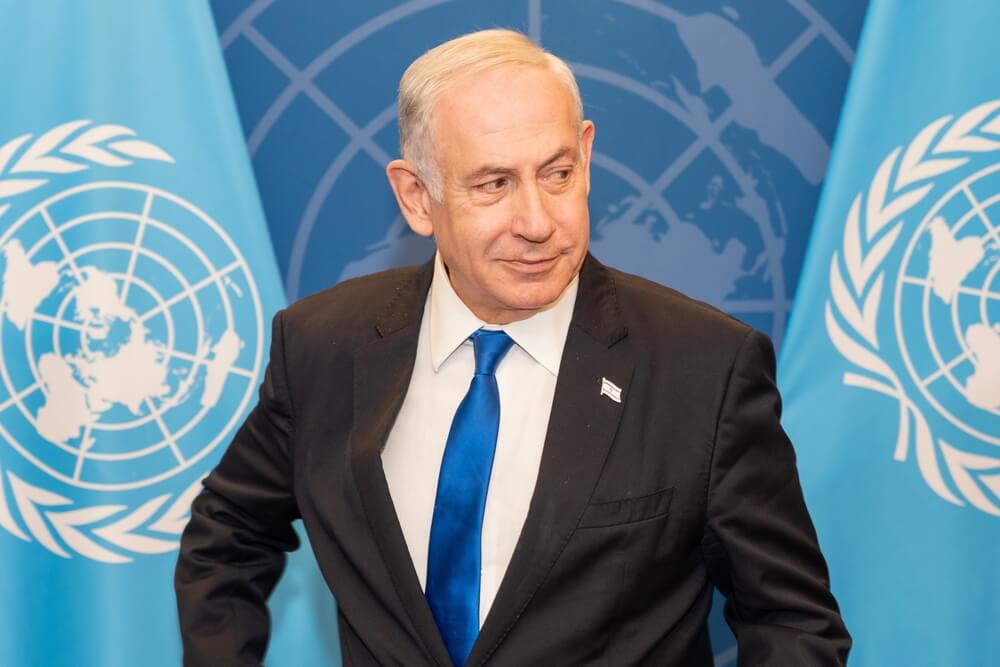Appeals by the US and several of Israel's Western allies did not bear fruit, so the Knesset overwhelmingly passed laws prohibiting the UN agency for Palestinian refugees, UNRWA, from working on Israeli territory in Gaza and the West Bank.
This decision, despite long-term foreshadowing, plunges the Middle East crisis into uncharted waters, intertwining Israel's competencies and interests, the humanitarian aspect, the allies' attitude towards Israel, and the overall functioning of the UN system.
Israel should not be expected to reconsider these decisions, given that the two laws were passed by a very convincing majority of 92 and 87 votes respectively in the 120-seat parliament.
The government thus received very broad support for its long warning that the UNRWA mission was deeply compromised due to the participation and support of many of its members in the terrorist actions of Hamas.
Expected general condemnation of Israel
The new laws effectively block the work of UNRWA, as Israel withdraws from any cooperation with the mission. This means, among other things, the suspension of the issuance of entrance permits for Gaza and the West Bank, as well as the ban on the work of UNRWA members on the territory of Israel.
“Anyone that behaves like a terrorist has no rights in Israel. UNRWA equals Hamas, period,” said Boaz Bismuth, a member of Netanyahu's Likud in the parliament and one of the drafters of the law.
Israeli government had to count on general condemnation of its latest decision, including from its closest allies
Benjamin Netanyahu's government had to count on general condemnation of its latest decision, including from its closest allies.
Two weeks ago, US Secretary of State Antony Blinken and Defence Secretary Lloyd Austin, in a letter to the Israeli government, requested the immediate delivery of humanitarian aid to the nearly two million people detained in Gaza, which would otherwise have led to the denial of US military aid to Israel.
“We continue to urge the government of Israel to pause the implementation of this legislation. We urge them not to pass it at all. We will consider next steps based on what happens in the days ahead,” stated US State Department spokesman Matthew Miller last Monday, as Washington's latest attempt to dissuade Israel from passing legislation against UNRWA.
Narrow space for compromise
Given the seriousness of Washington's warning, as well as those of other allies such as the UK, Germany, France, and Spain, Israel found itself in a position to seek a middle ground between two extremes after passing two laws on UNRWA.
One involves standing by its decision and completely delegitimising the Palestinian UN mission, while the other involves asking its closest partners not to turn their backs on Israel.
Laws passed in the Knesset have greatly narrowed that space, but it still exists.
The Israeli legislator has allocated a period of 90 days for the full implementation of the law
Firstly, the Israeli legislator has allocated a period of 90 days for the full implementation of the law. This means that the blockade of UNRWA activities will begin at the end of January.
In the Middle East, this represents a significant amount of time for diplomacy to find solutions that not only address the significant humanitarian needs of the Palestinians in Gaza but also align with Israel's determination to terminate the UN mission, at least in its current form.
Therefore, the Israeli PM's office issued a message immediately after the law was passed, offering the government to act as a substitute for UNRWA in terms of supplies and other humanitarian aspects in Gaza.
“In the 90 days before this legislation takes effect—and after—we stand ready to work with our international partners to ensure Israel continues to facilitate humanitarian aid to civilians in Gaza in a way that does not threaten Israel’s security,” Netanyahu's office announced.
Gaza the day after
Proponents of the continuation of UNRWA’s work, as well as the US State Department, believe that the agency is "irreplaceable" in its mission, which, in addition to humanitarian deliveries, also deals with providing conditions for basic education and healthcare.
One of the directions for seeking a compromise in which the endangered Palestinian population would not suffer is to transfer the mandate from UNRWA to another UN agency, which deals with the care of refugees around the world—UNHCR.
 Israel has previously made it clear that UNRWA will not have a place in Gaza during the post-conflict period - Benjamin Netanyahu
Israel has previously made it clear that UNRWA will not have a place in Gaza during the post-conflict period - Benjamin Netanyahu
The strongest resistance to this transformation comes from the UN, where they consider the UNRWA mission to be unique and purposeful. But Israel has already taken steps to transform its mission, and that will remain an important factor in all future decisions, regardless of widespread opposition to the new laws.
Projections about the day after the Israeli operation in Gaza—that is, the participation of international missions in the organisation of daily life, the continuation of humanitarian deliveries, and even the constitution of the local government—will play a significant role when looking for a solution.
Israel has previously made it clear that UNRWA will not have a place in Gaza during the post-conflict period, so it is important to consider the adoption of new laws on blocking this agency's operations as Israel’s significant motive for preparing the ground for the period after the end of the conflict.